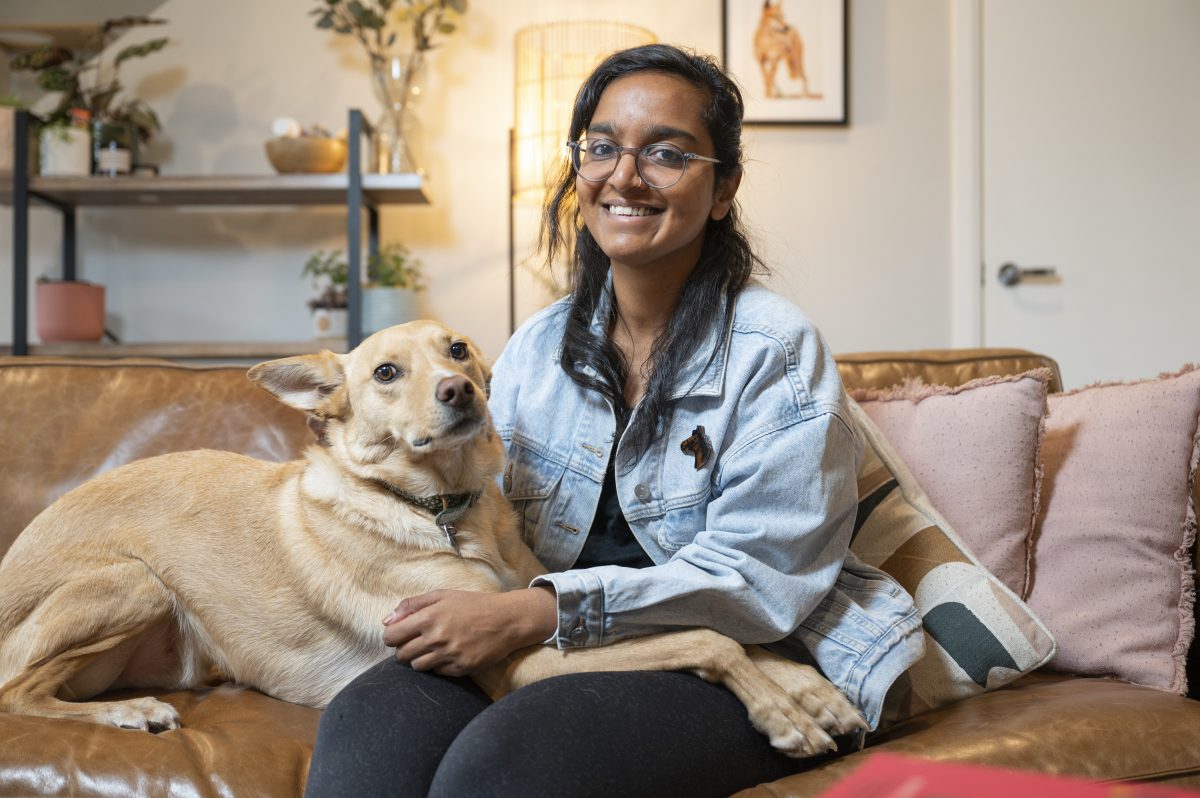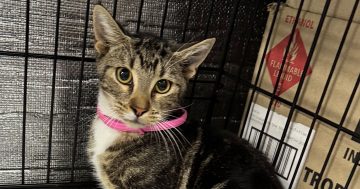
The much-loved Charlie, who well and truly landed on his paws when he was rehomed with Zoya. Photo: Martin Ollman.
Year in Review: Region is revisiting some of the best Opinion articles of 2024. Here’s what got you talking, got you angry and got you thinking this year. Today, Zoya Patel takes a look at pet ownership.
I used to be adamant that the worst thing you could do for your pet dog was ‘give up on him’. By that, I meant giving your pet away to a new home. Now, I think the worst thing you can do is get a pet when you’re not willing and ready to commit to them for the entirety of their life and give them the quality of care they deserve for that time – the error is in the initial obtaining of the dog. But it is made much, much worse if you keep your dog when you’re no longer providing the best quality of life for them.
This past week, I’ve been preoccupied with this issue after having several discussions about what people should do when they no longer provide the same level of attention and care to their dog after a major life upheaval. This could be having a child, a new job, illness, moving interstate, etc.
For whatever reason, they aren’t willing, and in some cases, even interested in their dog’s care, or they are no longer able to because of factors out of their control. The latter circumstance is, of course, heartbreaking, and it’s vital that people feel supported to make difficult decisions for their pets when they are facing significant challenges themselves. But in the former cases, the typical attitude seems to be that it would be better to hold on to their dog, that they will ‘adjust’ to their new life of fewer walks, fewer interactions, maybe even being moved outdoors, because rehoming them is inherently wrong.
I disagree.
Having adopted a dog that was rehomed from a situation of mild neglect, I am forever grateful to the family that made the right decision for him and made sure he went to a home that would cater to his every need. If my boy, Charlie, hadn’t been rehomed, he would still be living in a backyard without a lot of engagement, suffering from spectacular hip dysplasia that his original family couldn’t afford to treat.
Instead, he went to a rescue org that fostered him for a year and diligently vetted different homes before placing him with us – a couple who were able to afford surgery on his hips and give him a forever home. Charlie has been with us for four years and is truly one of the loves of my life.
Being responsible pet owners, when we were looking to buy a house, we made sure we found a place that would suit both Charlie and our rescue cat, Bella. When we were expecting our first child, we also discussed and made a plan to make sure Charlie’s routine didn’t change – he gets his two walks, his regular enrichment activities, his multiple cozy indoor beds, and his premium diet. Nothing has changed for him, other than the introduction of the baby, whom he seems to adore.
I appreciate the privilege in our situation. We are able to afford Charlie’s care, and we don’t have other extenuating circumstances that could have impacted his care when we had our baby. For example, I have had robust physical and mental health post-partum, which is definitely not the case for many women, and I appreciate that means my own feelings for Charlie haven’t changed. It has been easy to keep prioritising him.
If that isn’t the case, though – and if you know that the shift in your ability or interest to care for your dog is long-term and not a temporary phase – I genuinely think the best thing you can do is ethically and responsibly find them a new home.
To be very clear, there is a BIG difference between ethically rehoming a dog and surrendering to a shelter. The latter is sometimes the only option, but shelters are overrun and struggle to care for the high volume of dogs they receive.
But if you can either take the time to look for the right home and care for your dog until you do, or work with a suitable rescue that can place your dog in foster care, I believe it is the right thing for them and you. Yes, it causes upheaval for the animal, but having settled Charlie in, I can confirm that dogs are resilient, and if you can work with them to help them integrate into their new environment, they will still be much happier than staying in a home where they’re neglected.
The issue with shelters being overrun with dogs shouldn’t mean that we keep dogs in situations that are bad for them – it means people need to think long and hard before they get a dog in the first place. This means our first step should always be adoption rather than purchasing a pedigree dog.
But the shame and stigma we place on people who have to make the call to rehome their dogs is unfair, in my opinion, and not in the best interests of the animal.
Original Article published by Zoya Patel on Riotact.
















